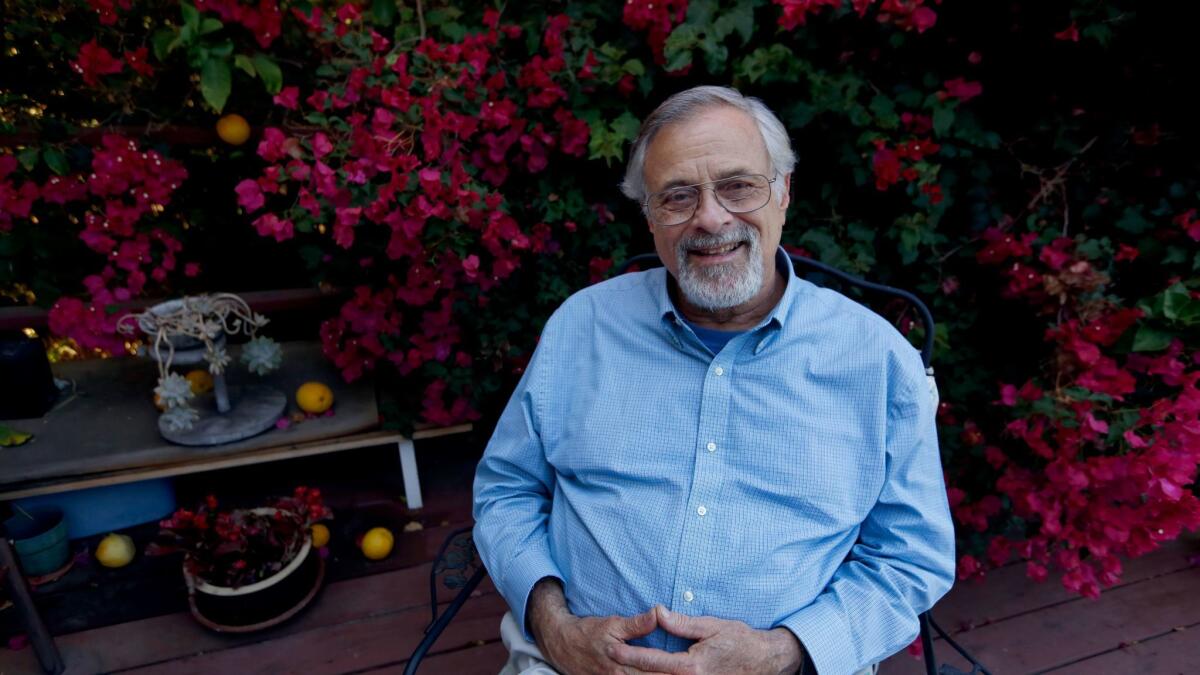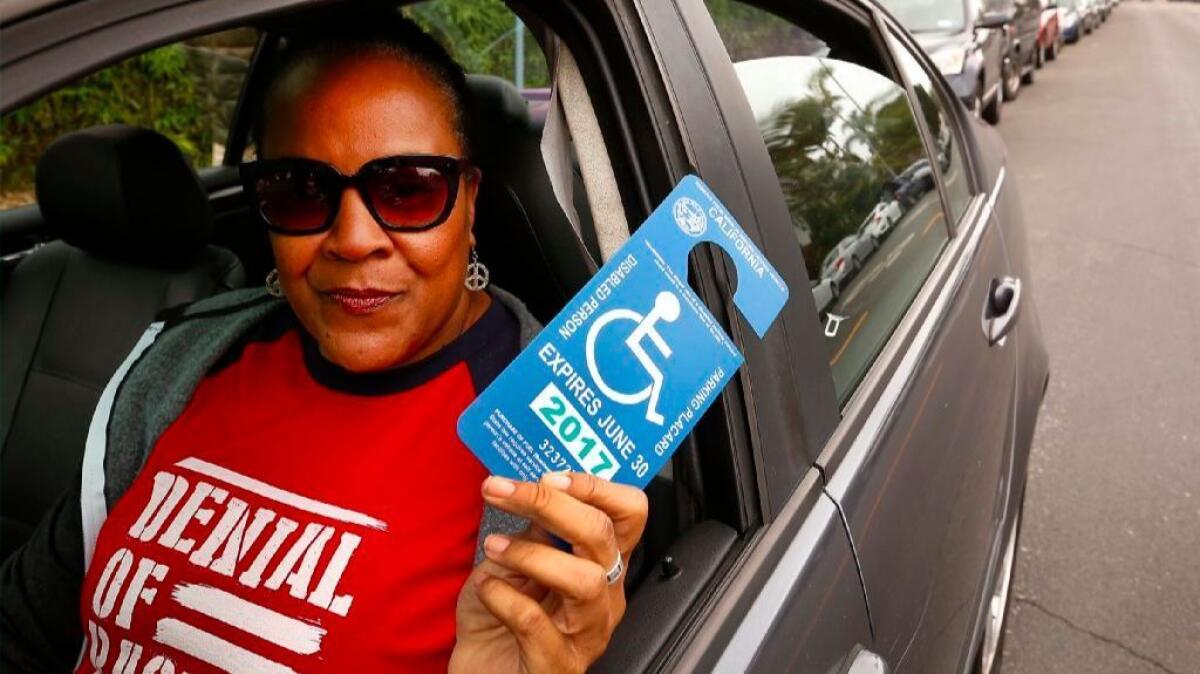Newsletter: Essential California: She watched her ex-husband end his life under California’s new right-to-die law.

Good morning, and welcome to the Essential California newsletter. It is Saturday, July 1. Here’s what you don’t want to miss this weekend:
TOP STORIES
Witnessing the end
Roberta Stone watched her ex-husband end his life under California’s new right-to-die law. Bob Stone had been diagnosed with bone marrow cancer the year prior, and chemotherapy had failed. He was one of 111 people last year who took advantage of a new law in California allowing people with terminal illnesses to request medicines from their doctors to kill themselves. Los Angeles Times
The end of an era
For 30 years, KSCI’s programming featured an eclectic mix of morning shows, talk shows, news and coverage of topics from sports to music, travel to religion. At one point, it offered content in 14 Asian languages, including Japanese, Vietnamese and Tagalog, along with Spanish. That’s now ending as the channel ceases its international programming. Los Angeles Times
When the budget is a rallying call
The rhetoric from California Democrats surrounding this year’s state budget, signed into law Tuesday, has sounded more like a call to arms. It is the latest sign that the era of President Trump has done more than change the mood of the majority party’s lawmakers in Sacramento — it’s changed their approach to governing the nation’s most populous state. Los Angeles Times
CALIFORNIA
No way, Mr. President: “I will not provide sensitive voter information to a committee that has already inaccurately passed judgment that millions of Californians voted illegally,” Secretary of State Alex Padilla said, in response to the Trump administration’s request for information in order to study voter fraud in the 2016 election. “California’s participation would only serve to legitimize the false and already debunked claims of massive voter fraud.” San Francisco Chronicle
A new debate: Is algebra necessary to obtain a college degree? A growing number of educators have challenged this long-held gold standard of math in California, particularly at a time when two-year colleges are under increasing pressure to improve completion rates. Los Angeles Times
Jailhouse arrests: Fourteen people, including 12 Los Angeles County jail inmates, have been charged in connection with a series of violent prisoner assaults orchestrated by the Mexican Mafia, authorities announced Friday. Los Angeles Times
Gang roundup: Dozens of people were arrested and 77 weapons were seized in what law enforcement officials said Thursday was the largest gang takedown in the San Jacinto Valley. Los Angeles Times
More science, more problems: The threat of earthquakes keeps rising as scientists learn more about seismic faults. San Diego Union-Tribune
Plane crash: A small plane crashed on the southbound 405 Freeway north of MacArthur Boulevard in Irvine. The crash injured the plane’s two passengers. CBS LA
This week’s most popular stories in Essential California:
1. Eight California central coast dining destinations worth the drive. Eater LA
2. Here’s why you don’t want to have a baby in a car. The New York Times
3. Here’s what $775,000 can buy you in Los Angeles these days. Curbed LA
4. How homeless women survive the dangers of skid row. Los Angeles Daily News
5. 111 terminally ill patients took their own lives in first 6 months of California right-to-die law. Los Angeles Times
THE STORY BEHIND THE STORY

Today’s installment comes from one of your Essential California authors, Benjamin Oreskes. He wrote last week about how the city of Los Angeles has not built any disabled parking spots requested by residents in seven years. Learn below how that story came together:
The blessing and curse of having your email address splayed across the Internet is that lots of unsolicited messages land in your inbox. Some come from “Nigerian princes.” Some come from public relations representatives pitching a person or product. And some come from angry readers wishing you the worst.
Somewhere in this daily deluge, a few emails that might be the kernel of a story also trickle in.
Several months ago, the day after I wrote a widely shared story about the abuse of disabled parking placards, one such message from Del Hunter-White came my way.
Her email began like this: “Great article today regarding the misuse of disable placards. However, I have a story for you. I live in Venice and there’s no disabled street parking.”
She went on to explain how, in her quest to get more blue-curb street parking near her home, she learned that the city had not built any new disabled spots since 2010.
Here was a great tip from a loyal reader.
Now the hard part began.
Del’s story led me on a quest to understand why there had been this moratorium on building disabled parking spots even as the number of people with disabled placards grew in Los Angeles County. This part of the reporting was a slog, but also my favorite. It required going from city bureaucrat to city bureaucrat, peeling back the onion to understand a complicated issue better.
I learned how, when cement must be poured, capital improvements projects become a whole lot more difficult and expensive to pull together. I also learned that there are lots of people employed by the city working very hard to satisfy residents’ needs — but it’s tough for them to stay on top of the ever-growing lists of demands.
After weeks of reporting, a story, which had started wth an email from Del, appeared online and in print.
With that article in the rearview mirror, I’m now working on several different projects — a few of which started with emails from readers just like Del.
ICYMI, here are this week’s Great Reads
Behind the scenes of ‘The Bachelor’ franchise: Heavy drinking is not uncommon on the “Bachelor” shows, with contestants sometimes becoming so intoxicated that they see the extent of their behavior only when it eventually airs on national television. But for the first time in the franchise’s 15-year history, an incident fueled by on-set drinking has led to both public scrutiny and reports of internal policy changes regarding alcohol and sexual behavior. Los Angeles Times
A fast fall: Loot Crate became the nation’s fastest-growing start-up, but by last summer, when the Los Angeles firm landed on the cover of Inc. magazine for its stupendous expansion, the enthusiasm had been zapped. Read about the company’s downward slide and how it plans to right the ship. Los Angeles Times
Not the Louvre: A range of alternative galleries have sprung up in Los Angeles, creating micro-museums that offer unique experiences not found in “white-walled galleries.” The Guardian
Why single-payer legislation failed: The organizers whipping support for a single-payer healthcare option in California are deceiving their supporters, one writer argues. It’s time for them to stop. The Intercept
A massacre in Mexico: The inside story of a cartel’s deadly assault on a Mexican town near the Texas border — and the U.S. drug operation that sparked it. ProPublica
LOOKING AHEAD
Saturday: Mayor Eric Garcetti is inaugurated for second term.
Tuesday: Various July 4 events around Southern California.
Thursday: First anniversary of Metro Bike Share program.
Please let us know what we can do to make this newsletter more useful to you. Send comments, complaints and ideas to Benjamin Oreskes and Shelby Grad. Also follow them on Twitter @boreskes and @shelbygrad.
More to Read
Get the L.A. Times Politics newsletter
Deeply reported insights into legislation, politics and policy from Sacramento, Washington and beyond. In your inbox three times per week.
You may occasionally receive promotional content from the Los Angeles Times.











